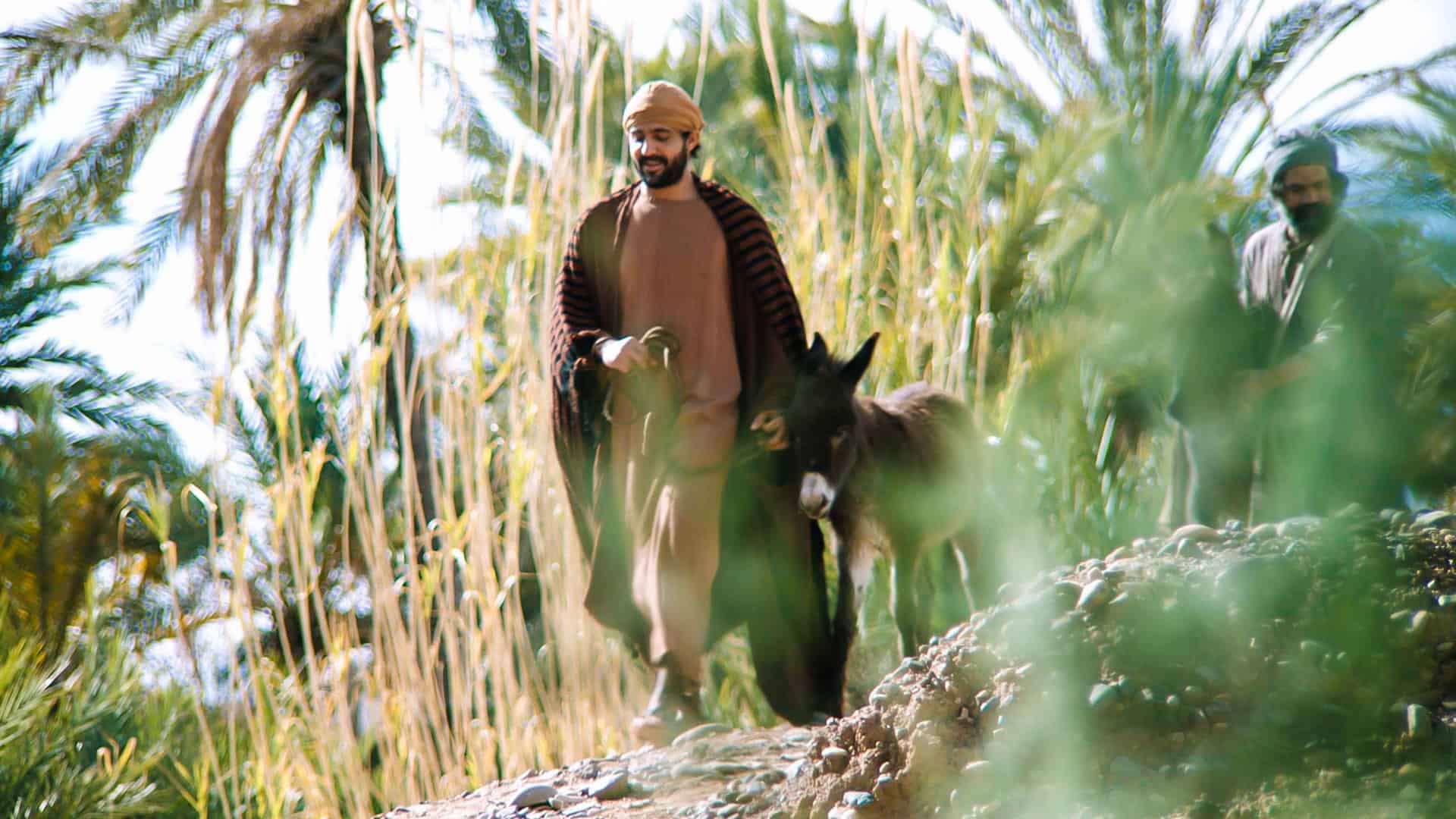About 500 years before the time of Christ, Zechariah prophesied, “Rejoice greatly, Daughter Zion! Shout in triumph, Daughter Jerusalem! Look, your King is coming to you; He is righteous and victorious, humble and riding on a donkey, on a colt, the foal of a donkey” (Zech. 9:9). The stage was set for the fulfillment of this prophecy in Matthew 21:1-3 [see also John 12:14-15]: “When they approached Jerusalem and came to Bethphage at the Mount of Olives, Jesus then sent two disciples, telling them, ‘Go into the village ahead of you. At once you will find a donkey tied there, and a colt with her. Untie them and bring them to me. If anyone says anything to you, you should say that the Lord needs them, and immediately he will send them.’” Verses 4 and 5 go on to say, “This took place so that what was spoken through the prophet might be fulfilled: ‘Tell Daughter Zion, “Look, your King is coming to you, gentle, and mounted on a donkey, even on a colt, the foal of a beast of burden.”’” Of course, this is a quotation of Zechariah 9:9.
All four Gospel writers wrote of the Triumphal Entry, but only Matthew spoke about a donkey and its colt. As Jesus rode the donkey, the mother would, of course, have walked alongside. Jesus apparently rode both—each one at a different time (see Matt. 21:7). Kings normally made entrances on horses, boosting their images as conquerors; here Jesus rode on a lowly donkey. He was “humble,” said Zechariah, and “gentle,” wrote Matthew in quoting the Old Testament prophet. Although Zechariah wrote, “He is righteous and victorious,” Matthew did not include this in His quotation. Jesus certainly was “righteous” and was “victorious” in certain ways even at this point. Yet Matthew stressed Jesus’ humility and gentleness, and that Jesus was Israel’s King—“your King”—making His way “to you,” meaning in part “to benefit or bless you.” Soon He would be crucified; He was currently on a mission of peace and reconciliation—not judgment. This is consistent in so many ways with statements He made about Himself and with other Bible passages that speak of Him—if people only would come to Him on His conditions and obey Him. Faith in Him will save them; then He will give His followers the power to serve others as He served when He walked the earth.
- In Matthew 11:28-29 Jesus said, “Come to Me, all of you who are weary and burdened, and I will give you rest. All of you, take up My yoke and learn from Me, because I am gentle and humble in heart, and you will find rest for yourselves. For my yoke is easy and My burden is light.”
- “Jesus called them over and said, ‘You know that the rulers of the Gentiles dominate them, and the men of high position exercise power over them. It must not be like that among you. On the contrary, whoever wants to become great among you must be your servant, and whoever wants to be the first among you must be your slave; just as the Son of Man did not come to be served, but to serve, and to give His life—a ransom for many’” (Matt. 20:25-28).
- In John 13:3-5 we read, “Jesus knew that the Father had given everything into His hands, that He had come from God, and that He was going back to God. So He got up from supper, laid aside His robe, took a towel, and tied it around Himself. Next, He poured water into a basin and began to wash His disciples’ feet and to dry them with the towel tied around Him.”
- In John 13:34-35, Jesus told His disciples, “I give you a new command: Love one another. Just as I have loved you, you must also love one another. By this all people will know that you are My disciples, if you have love for one another.”
Copyright © 2016 B. Nathaniel Sullivan. All rights reserved.
photo credit: www.lumoproject.com
Unless otherwise noted, all Scripture quotations in this article are taken from the Holman Christian Standard Bible®, Copyright © 1999, 2000, 2002, 2003, 2009 by Holman Bible Publishers. Used by permission. Holman Christian Standard Bible®, Holman CSB®, and HCSB® are federally registered trademarks of Holman Bible Publishers.
